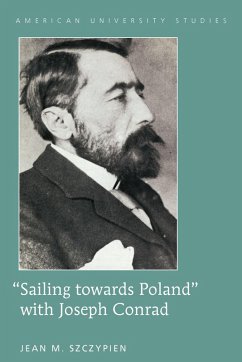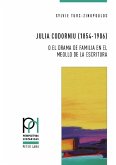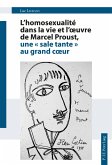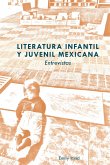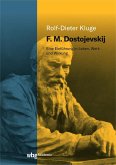Joseph Conrad ingeniously buried images from Polish literature and culture into his works. Once recognized, these references alter the accepted meanings of the texts. In an interview that was published in Kuryer Polski (in the then Polish city of Ostrawa, now in the Czech Republic) on 26 August 1915, Conrad himself declared about the nineteenth-century Polish poets: "Krasinski, Mickiewicz and Slowacki. Their words are everything for me. I was raised and formed by them." Yet, the Polish sources deeply rooted in Conrad's works have been scantily acknowledged and hardly explored, although notable intertextual theorists have argued that the ultimate understanding of the text comes from the intertext(s).
The first part of this book analyzes Conrad's first novel, Almayer's Folly, and four of his greatest works: Lord Jim, Nostromo, The Secret Agent and Under Western Eyes. Unearthing the cache of Polish references in these works enhances our intellectual and aesthetic appreciation of Conrad as an artist par excellence. The signs recall literary and artistic works as well as aspects of social behavior, as Kristeva and Riffaterre explain. Bloom provides additional insight regarding the writer's struggle to supersede his predecessors.
The second part of the book looks at two autobiographical works: A Personal Record and "A Familiar Preface." With poetic eloquence, Conrad proclaims his victory over his tragic past in A Personal Record. A tone of gaiety rises stubbornly in the midst of complete awareness of sorrow. The tone of "A Familiar Preface" is also unmistakably triumphant. More than joyous, the merriment in these self-portraits celebrates many worldly achievements, but ultimately one great triumph. In his writings the English author has transcended bitter adversities by transfiguring dreadful facts into the perfection and permanence of art.
The first part of this book analyzes Conrad's first novel, Almayer's Folly, and four of his greatest works: Lord Jim, Nostromo, The Secret Agent and Under Western Eyes. Unearthing the cache of Polish references in these works enhances our intellectual and aesthetic appreciation of Conrad as an artist par excellence. The signs recall literary and artistic works as well as aspects of social behavior, as Kristeva and Riffaterre explain. Bloom provides additional insight regarding the writer's struggle to supersede his predecessors.
The second part of the book looks at two autobiographical works: A Personal Record and "A Familiar Preface." With poetic eloquence, Conrad proclaims his victory over his tragic past in A Personal Record. A tone of gaiety rises stubbornly in the midst of complete awareness of sorrow. The tone of "A Familiar Preface" is also unmistakably triumphant. More than joyous, the merriment in these self-portraits celebrates many worldly achievements, but ultimately one great triumph. In his writings the English author has transcended bitter adversities by transfiguring dreadful facts into the perfection and permanence of art.
Dieser Download kann aus rechtlichen Gründen nur mit Rechnungsadresse in A, D ausgeliefert werden.
"In a captivating new book, Jean M. Szczypien's important work deftly reinstates Conrad's enduring attachment to, as well as complex relationship with his native Poland. In its range and depth the book goes much further than to suggest the presence of Conrad's Polish 'background' in his fiction. Szczypien's deep and extensive research reveals the subtle character of Conrad's relationship to Poland and Polish literature. Each chapter delivers a welcome addition to Conrad studies and an expert assessment of the intertexts and traces of the Polish literary and linguistic contexts of Conrad's work. Szczypien shows the way in which the language and content of Polish texts, philosophical ideas, and political skepticism, especially of the Romantic period, resonate throughout Conrad's fiction and letters." Susan Jones, Fellow and Tutor in English, St Hilda's College, University of Oxford

